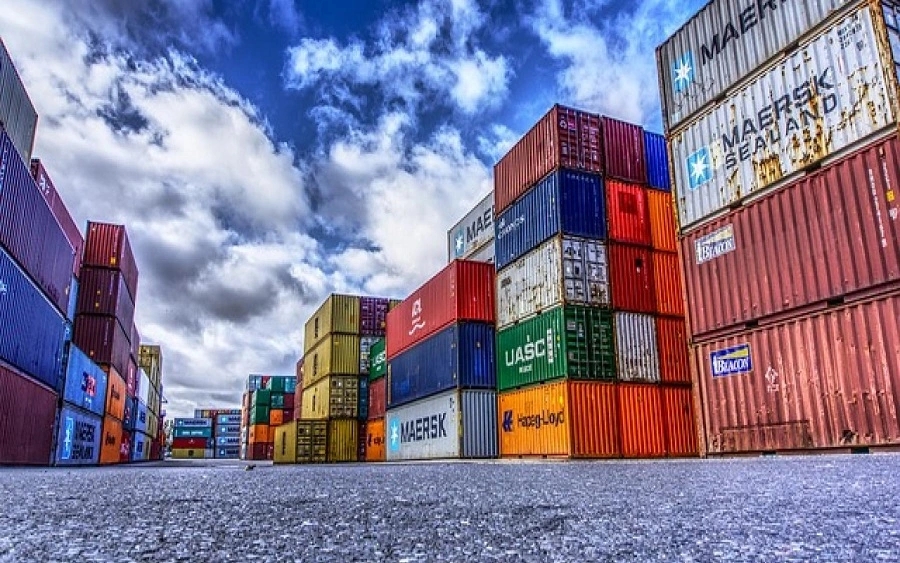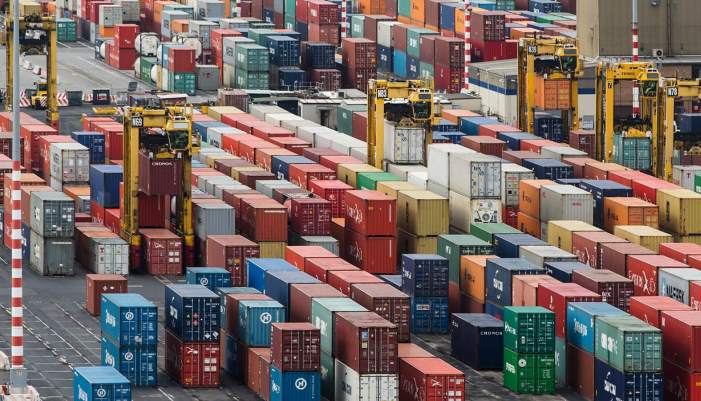A Brighter Economic Outlook
In a promising development for Nigeria’s economy, Dele Akintola, Chief Investment Officer (CIO) of Alerzo, has predicted that the country could achieve a trade surplus in 2025. This optimistic forecast is based on key macroeconomic factors, including reduced fuel imports, increased local refining capacity, and the export potential of the Dangote Refinery. Akintola shared these insights during a recent episode of Drinks and Mics, a podcast hosted by Ugo Obi-Chukwu, CEO of Nairametrics.
The prediction comes on the heels of Nigeria’s impressive $21.1 billion trade surplus in 2024, as reported by the National Bureau of Statistics (NBS). However, while the outlook appears positive, experts have raised concerns about the effectiveness of Nigeria’s trade agreements, particularly with China, and their impact on the nation’s economic stability.
Key Drivers of Nigeria’s Trade Surplus
Akintola highlighted several factors contributing to Nigeria’s improved trade balance:
- Reduced Fuel Imports:
With the Dangote Refinery now operational and other local refineries ramping up production, Nigeria has significantly reduced its reliance on imported fuel. This has led to a substantial decrease in import costs, a major contributor to the country’s trade deficit in previous years. - Export Potential of Dangote Refinery:
The Dangote Refinery, one of the largest in the world, has begun exporting refined petroleum products. This development not only boosts Nigeria’s export earnings but also positions the country as a key player in the global energy market. - Decline in Overall Imports:
Akintola noted that the volume of imports into Nigeria has decreased, further improving the trade balance. This trend is attributed to increased local production and government policies aimed at promoting self-sufficiency.
“I think we will still have a current account surplus this year, largely on the back of the fact that we are not importing as much fuel as we used to. The amount of imports into the country has also reduced,” Akintola stated.
Concerns Over Nigeria-China Trade Relations

While Nigeria’s trade outlook appears promising, experts have raised concerns about the effectiveness of the country’s trade agreements, particularly the currency swap deal with China. Arnold Dublin Green, CEO of Cordros Capital, expressed skepticism about the deal’s impact on naira stability.
“The China swap deal, which was supposedly a way to stabilize the naira, hasn’t quite worked because the size of the swap is quite small [2.5billion]comparedtothe20 billion trade volume,” Green explained.
He noted that China’s dominance in Nigeria’s trade data is significant, with the Asian giant accounting for N14.14 trillion of Nigeria’s imports in 2024. The bulk of these imports include electronics, machinery, textiles, and industrial equipment, which are crucial for Nigeria’s manufacturing and technology sectors.
Green also highlighted that the primary objective of the currency swap deal may have been to reduce China’s dependence on the US dollar rather than to benefit Nigeria. “We did the same with South Africa, we did the same with Egypt, and we even talked about the Kenyan panda bond. The entire trade of China is just a swap,” he added.
Renewal of the Nigeria-China Currency Swap Agreement
In December 2024, Nigeria and China renewed their $2 billion currency swap agreement, initially signed in 2018. The deal aims to facilitate trade and investment between the two nations by allowing Nigerian businesses to conduct transactions in yuan instead of the US dollar.
While the agreement has its merits, analysts argue that its impact remains limited due to its relatively small size compared to the overall trade volume between the two countries. Despite these challenges, China continues to play a pivotal role in Nigeria’s economy, reinforcing its position as the country’s largest trading partner.
Read also: “Tragedy Strikes North Macedonia: Nightclub Fire Kills 51, Injures Over 100”
The Role of Other Trading Partners
While China dominates Nigeria’s import profile, other countries such as India also play a significant role. India’s contributions to Nigeria’s imports include pharmaceuticals, industrial raw materials, and processed food products. These imports are essential for Nigeria’s healthcare and manufacturing sectors, highlighting the importance of diversifying trade relationships.
The Path Forward: Opportunities and Challenges
Nigeria’s potential trade surplus in 2025 is a testament to the country’s progress in reducing import dependency and boosting local production. However, challenges remain, particularly in optimizing trade agreements and ensuring that they deliver tangible benefits for the Nigerian economy.
To sustain this positive trajectory, experts recommend:
- Strengthening Local Industries:
Continued investment in local manufacturing and refining capacity will reduce reliance on imports and create jobs. - Diversifying Trade Partnerships:
Expanding trade relationships beyond China and India can help mitigate risks associated with over-reliance on a single trading partner. - Enhancing Trade Agreements:
Negotiating more favorable terms in trade deals, particularly currency swap agreements, can maximize their benefits for Nigeria. - Promoting Export Diversification:
Beyond petroleum products, Nigeria should explore opportunities in agriculture, solid minerals, and services to boost export earnings.
A Promising Yet Cautious Outlook
Dele Akintola’s prediction of a trade surplus in 2025 offers a glimmer of hope for Nigeria’s economy, signaling progress in reducing import dependency and increasing export potential. However, the concerns raised by experts about the effectiveness of trade agreements, particularly with China, underscore the need for strategic reforms and diversification.
As Nigeria navigates the complexities of global trade, the focus must remain on building a resilient and self-sufficient economy that can withstand external shocks and deliver sustainable growth for its citizens.
















Got a Questions?
Find us on Socials or Contact us and we’ll get back to you as soon as possible.